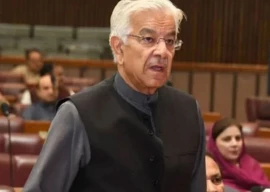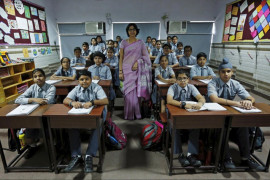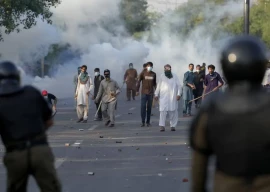
Up to 8,000 people languish on death row in dozens of the country’s notoriously overcrowded and violent jails.
Once a moratorium is in place, reinstatement of capital punishment is rare, with more than 150 countries having already either abolished the death penalty or stopped administering it.

A 2008 moratorium imposed by the previous government, praised at the time by global rights groups, expired on June 30.
“The present government does not plan to extend it,” said Omar Hameed Khan, an interior ministry spokesman.
President Asif Ali Zaradri must approve all executions. The government puts the number of people on death row at about 400. The method of execution is usually hanging.
“Pakistan is part of a dwindling minority of states who continue to retain the death penalty and carry out executions,” the International Commission of Jurists said. “The prospect of lifting the moratorium is all the more alarming given the extraordinarily high number of people on death row.”
Khan said the new policy of Prime Minister Nawaz Sharif’s government was to execute all death row prisoners, except those pardoned on humanitarian grounds.

There is, however, no firm evidence showing the practice can serve as a deterrent to crime or extremism, according to the United Nations and human rights groups.
“As long as the death penalty is in place, the risk of executing innocent people can never be eliminated,” rights group Amnesty International said.
The government says capital punishment is key to deterring crime in places such as Karachi, a megacity of 18 million plagued by violence, as well as in the areas on its border with Afghanistan where Taliban militants launch daily attacks.
Papua New Guinea, one of the world’s poorest and most corrupt countries, reinstated the death penalty in May and repealed its sorcery laws after a string of gruesome ‘witch’ killings and gang-rapes.
Asked about Amnesty’s criticism, Khan pointed to the fact that capital punishment was still in use in parts of the United States, a nation he said was home to the ‘best judicial system’.
Pakistan’s moratorium drew praise because of concerns its courts and police were too inept to ensure the accused a fair trial.
Pakistan did, however, break its own rules in 2012, when it executed a convicted murderer and a former army serviceman.
The previous government of the Pakistan’s Peoples Party, whose former chairman, Benazir Bhutto, was a fierce opponent of capital punishment, enforced the moratorium soon after taking power in 2008 under President Zardari. Zardari is due to step down later this year.
Published in The Express Tribune, July 8th, 2013.
COMMENTS (4)
Comments are moderated and generally will be posted if they are on-topic and not abusive.
For more information, please see our Comments FAQ
































1714024018-0/ModiLara-(1)1714024018-0-270x192.webp)










Good for Pakistan. The chances of hanging an innocent person is almost next to zero. The flip side is, once a person is put to death, the chances of him killing, raping or comitting other vile acts are zero.
these rights group dont know the anguish and sufferings of the victims of terrorist attack. They want culprits who rape and kill innocent girls to live their life. they cant raise their voice againt the electric chair or injecting of poison to death row prisoners. When the criminal knows he wont be hanged for his vicious crime, if he is a terrorist, his companions will some day rescue him by attacking the prison or on his way for a trial.
i think the govt. has taken a very good decision
Now where are those who advocates death penalty for rapists?